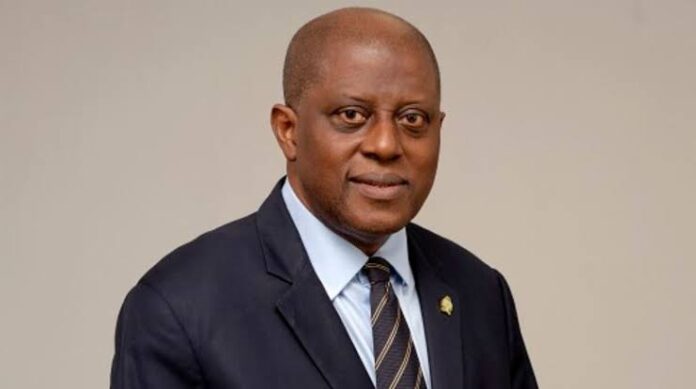The House of Representatives has called on the Central Bank of Nigeria (CBN) to suspend the recent increase in Automated Teller Machine (ATM) charges and the removal of free ATM withdrawals for customers using other banks.
This decision followed a motion of urgent public importance moved by a lawmaker, Marcus Onobun, who expressed concerns over the financial burden the new policy would place on Nigerians.
Lawmakers raised concerns about how the policy would affect ordinary citizens already struggling with the rising cost of living. They argued that removing free withdrawals from other banks’ ATMs would put additional pressure on Nigerians who rely on these services for daily transactions.
The House urged the CBN to put the policy on hold until it engages relevant committees on banking, finance, and financial institutions to review the situation properly.
CBN’s New ATM Charges Policy
On February 10, 2025, the CBN announced a new directive that introduced charges for customers using ATMs of banks other than their own.
The policy removed the existing rule that allowed customers to make three free ATM withdrawals per month at other banks. According to the CBN, the decision was aimed at improving ATM services and ensuring appropriate charges were applied.
With the new policy, customers will not be charged when using ATMs belonging to their own banks. However, those withdrawing from ATMs of other banks will now have to pay a fee of ?100 for every ?20,000 withdrawn.
For ATMs located outside bank premises, such as those in shopping malls and other public places, an additional surcharge of up to ?500 per ?20,000 withdrawal will be applied. This is on top of the ?100 fee for using another bank’s ATM.
The CBN defended the decision, stating that the rising cost of maintaining ATM services and the need for efficiency required an adjustment in charges. The bank maintained that the review would help banks expand ATM coverage and provide better service to customers.
Public Reactions and Criticism
Since the announcement, the policy has been met with strong criticism from Nigerians, financial experts, and consumer rights groups. Many argue that the charges will make banking more expensive for average citizens, especially those in rural areas where ATMs are not as readily available.
Critics believe that instead of increasing ATM charges, the CBN should focus on improving financial accessibility and encouraging more people to use the banking system.
Some Nigerians fear that the new charges will discourage ATM withdrawals and push more people towards cash transactions, which could hurt the government’s efforts to promote digital banking and a cashless economy.
Lawmakers Push for Suspension
Given the growing opposition to the policy, members of the House of Representatives insisted that the CBN should not proceed with the new charges until further consultations take place. Lawmakers stressed that Nigerians are already struggling with inflation, high food prices, and economic difficulties. They warned that any additional financial burden could worsen the situation for many citizens.
The House also emphasized the need for greater transparency in how financial institutions set banking charges. Lawmakers called for the CBN to justify why such a policy was necessary and to consider alternative measures that would not negatively impact customers.
What Happens Next?
With the House of Representatives demanding a suspension of the new ATM charges, the focus now shifts to how the CBN will respond. While the apex bank has insisted that the policy benefits both customers and financial institutions, public pressure may force a review of the charges.
If the CBN agrees to the lawmakers’ request, the implementation of the charges, which was set to take effect on March 1, 2025, could be delayed or revised. However, if the bank decides to proceed with the policy, Nigerians may have to adjust to the new fees unless further government intervention takes place.
As the debate continues, financial experts recommend that consumers explore alternative ways to manage banking costs. This could include using mobile banking services, digital payments, and planning cash withdrawals to minimize extra charges.
For now, Nigerians will be watching closely to see if the CBN listens to the concerns raised by lawmakers and the public.
Share
Read more

